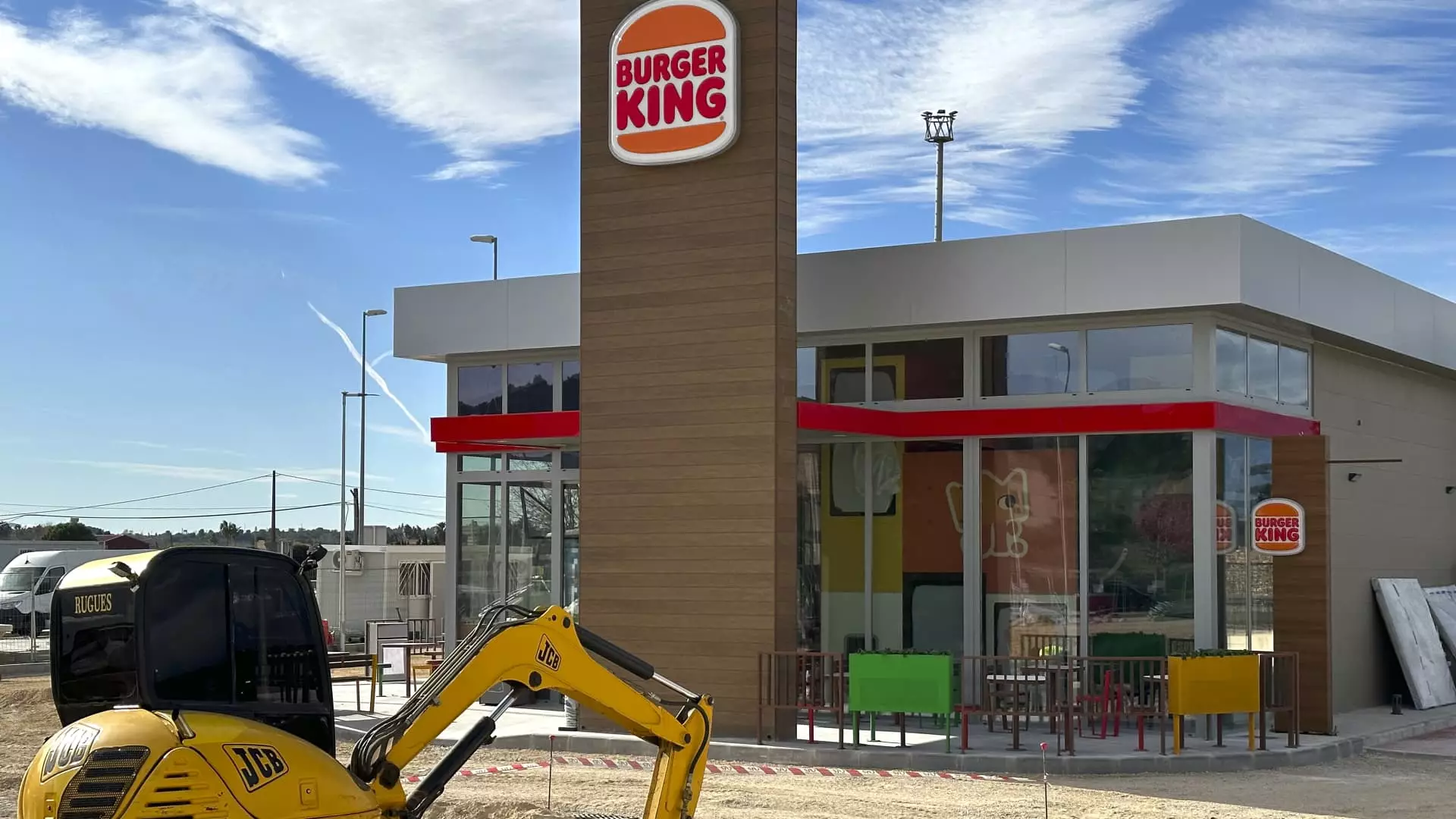In its most recent quarterly earnings report, Restaurant Brands International (RBI) revealed results that fell short of market expectations, a development that has sparked concern among analysts and investors alike. Specifically, the company’s earnings per share came in at 93 cents, dipping below the anticipated 95 cents. Similarly, revenue of $2.29 billion also missed projections of $2.31 billion. Following this news, RBI shares saw an approximate 2% decline during early trading. These results offer an unsettling snapshot of the company’s performance, particularly concerning the same-store sales across its four flagship chains: Burger King, Popeyes, Firehouse Subs, and Tim Hortons.
One of the most notable aspects of the report was the disheartening same-store sales growth, which only reached 0.3% globally. The individual performances of RBI’s core brands painted a bleak picture. Burger King experienced a lackluster 0.7% decline in same-store sales during the third quarter, which was disappointing given analyst expectations for flat sales. This shortfall signifies a crucial moment for the fast-food chain as it endeavors to revitalize its presence in the market. Similarly, Popeyes and Firehouse Subs saw significant drops in sales—declining by 4% and 4.8%, respectively—indicating deeper systemic issues rather than isolated incidents.
Despite the challenging landscape, CEO Josh Kobza expressed cautious optimism during discussions about the fourth quarter. He noted an uptick in same-store sales trends in October, suggesting that marketing initiatives and improved consumer sentiment may be yielding positive results. Citing factors such as decreasing gas prices and stabilizing inflation rates, Kobza indicated that these economic changes are positively influencing consumer spending behaviors. However, it remains to be seen whether these improvements will be sustained or if they represent only a brief recovery amid ongoing industry challenges.
The performance issues experienced by RBI’s brands reflect broader trends within the food service industry, where declining consumer spending has reignited competitive dynamics among fast-food chains. As the industry engages in “value wars,” companies like Burger King are grappling with the challenge of attracting customers who are increasingly price-conscious. The focus on value has overshadowed other marketing initiatives, diminishing the impact of menu innovations like the Fiery menu. Turning this ship around will require not only effective marketing but an insightful understanding of evolving consumer behaviors.
Among RBI’s brands, Tim Hortons emerged as a relative highlight, boasting a 2.3% increase in same-store sales. Although it fell short of Wall Street’s expectations of 4.1%, its growth in customer traffic and service efficiency provides a glimpse into the effective strategies that could be employed across other brands. Looking ahead, RBI must leverage this knowledge and replicate success by focusing on value-driven approaches that resonate with consumers, especially in the highly competitive landscape of fast food.
The disappointing third-quarter results have prompted RBI to revise its expectations for full-year system-wide sales growth. Previously predicted at 5.5% to 6%, the new range has been adjusted down to 5% to 5.5%. This downward revision not only reflects the challenges the company faces but also highlights the cautious approach management is adopting in navigating an unpredictable marketplace.
While Restaurant Brands International is encountering headwinds that undermine its performance, the company’s management is actively addressing these challenges. Ongoing economic improvements and strategic initiatives may usher in renewed growth, but the next few quarters will be crucial for the brand’s recovery and long-term viability in the competitive fast-food industry.


Leave a Reply